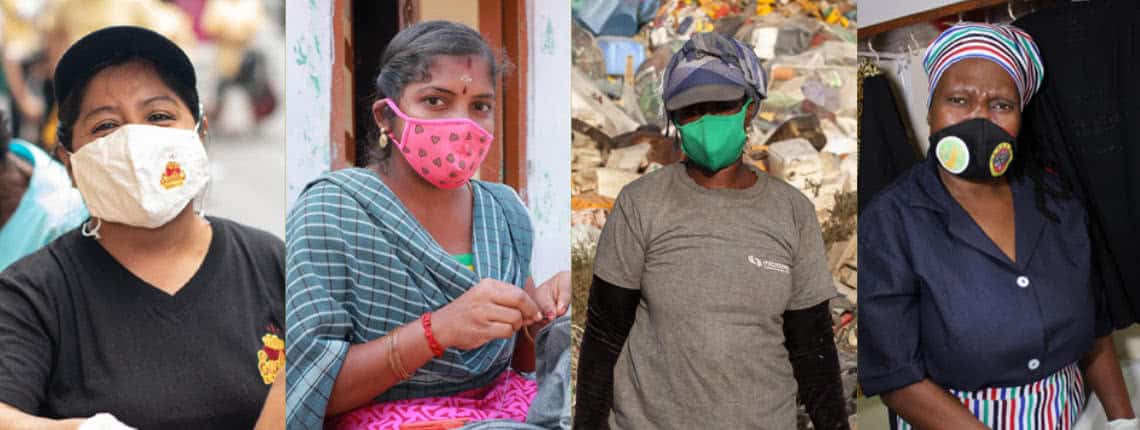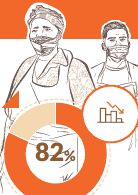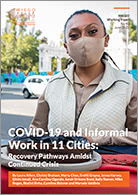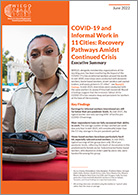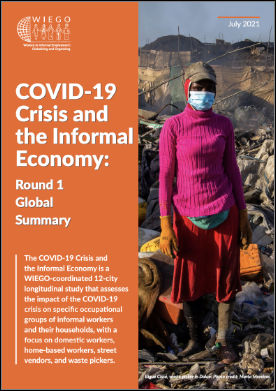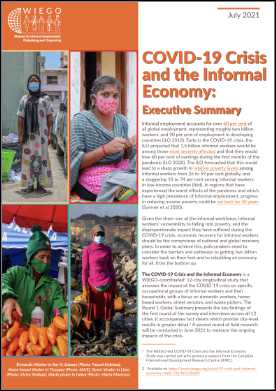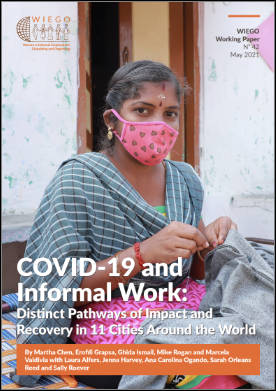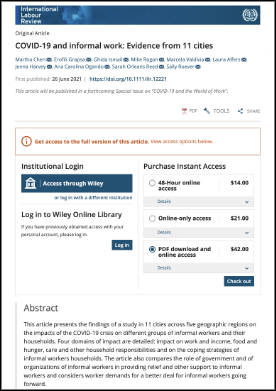Constatations globales :
L'étude sur la crise de la COVID-19 et l'économie informelle est une étude longitudinale multi-villes coordonnée par WIEGO qui évalue l'impact de la crise de la COVID-19 sur des groupes professionnels spécifiques de travailleuse·eur·s de l’informel et leurs ménages, en mettant l'accent sur les travailleuses domestiques, les travailleuse·eur·s à domicile, les vendeuse·eur·s de rue et les récupératrice·eur·s de matériaux. Le résumé global du premier cycle présente les principales conclusions du premier tour de l’enquête et des entretiens – menés en juin et juillet 2020 (milieu d'année) – dans 12 villes et accompagne des fiches d'information qui fournissent des résultats plus détaillés au niveau des villes. Une deuxième série de recherches sur le terrain a été menée à la mi-2021 pour mesurer les impacts continus de la crise.
|
English: Résumé Infographie (PDF) Español: Résumé Infographie (PDF) Français: Résumé Infographie (PDF) |
|
|
|
English: Résumé Aller à la publication (PDF) Español: Résumé Aller à la publication (PDF) Français: Résumé Aller à la publication (PDF) |
|
|
|
English: Résumé Aller à la publication (PDF) Español: Résumé Aller à la publication (PDF) Français: Résumé Aller à la publication (PDF) |
|
|
|
Chen, M., Grapsa, E., Ismail, G., Rogan, M., Valdivia, M., Alfers, L., Harvey, J., Ogando, A.C., Reed, S.O. and Roever, S. (2021), COVID-19 and informal work: Evidence from 11 cities. International Labour Review. Accepted Author Manuscript. https://doi.org/10.1111/ilr.12221 This article presents the findings of a study in 11 cities across five geographic regions on the impacts of the COVID-19 crisis on different groups of informal workers and their households. Four domains of impact are detailed: impact on work and income, food and hunger, care and other household responsibilities and on the coping strategies of informal workers households. The article also compares the role of government and of organizations of informal workers in providing relief and other support to informal workers and considers worker demands for a better deal for informal workers going forward. |
Demandes médiatiques :
Général : media@wiego.org
Contact (anglais) : Nicole Pryor, nicole.pryor@wiego.org ou +64 27 239 2575 (NZT)
Contact (espagnol) : Graciela Mora, graciela.mora@wiego.org ou +506 8358 5592 (UTC/GMT -6 heures)
